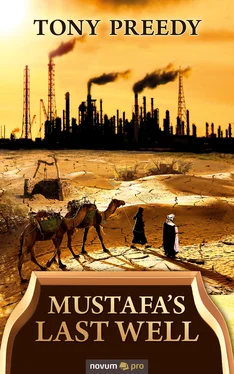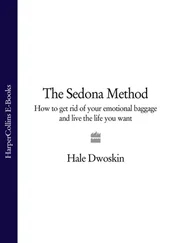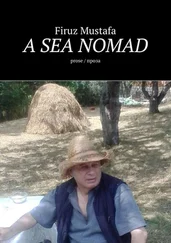***
When Mustafa awoke, he found only one camel and little food. He managed to get water for himself and the camel from his well. He cursed the boys as he set out for home, guided only by the oppressive sun on his back by day and the stars by night. The effort was too much for a man in poor health, and Mustafa did not survive. His camel returned to the farm. Its owner’s body was never discovered, but a record of the activity at the well and a map of its location were found with his hookah in the blanket pocket of the camel. The traders held out for a month, hoping by then that no near relative would come forward to claim the balance of Mustafa’s payment. They were disappointed when the Emir, who was of the same tribe as Mustafa, insisted the money, if not claimed, should be given to the Imam for charitable work. The Emir decreed that henceforth, in recognition of his sacrifice, the watering-place would be known as the Well of Mustafa.
***
Without knowledge of stellar navigation, the boys wandered across the desert in the general direction of Yemen by observing the direction of the sun at its zenith but failed to find a passage through the mountains. Their food and then water ran out, causing a slow death from the mixture of hunger, thirst, and exposure. One of their camels returned weeks later to the date farm, but the one carrying the gold could not keep up, for she was weighed down by her burden, and perished.
***
Two riders searching for grazing had been surprised the previous day to come across a newly built well at the near side of the great wadi, from which they eagerly drew water for their flock of sheep. They decided that it must have been built by their neighbours. The two, father and son, argued as to in whose territory it was situated.
The son said, “We should claim it to be on our land,” but the older man, the Sheikh who ruled the country, replied:
“Son, it is not important where the border lies. No one has ever disputed this because the relationship with our neighbours has always been amicable, and besides, the wadi land is a worthless desert.”
They found no vegetation and moved the flock back to what was undisputedly their territory, where they agreed that, after prayers, they would tell the rest of their tribal group to camp for the night.
The pair were wakened from their sleep beneath the stars by the sound of the wind rapidly strengthening from the South and burying them in sand. Hastily they loaded their camels, which were hobbled nearby, and started searching for their flock.
***
The traders, being keen to inspect the new well and have it blessed, organized a caravan headed by a brother of the Emir, which included the Imam and a youth, Juma, the eldest son and heir of the Emir. They were accompanied by three slaves from the Emir’s household; two young men from Burundi, who had been sold to the Arabs of Dar-es-Salaam by the chief of their tribe to punish their father, with whom the chief had quarrelled – they had been taken to Zanzibar and held until the arrival of the monsoon that allowed their transport by dhow to the Gulf; the third was Joseph, an older man with thin, grey hair, who had served the Emir since his arrival from Nubia as a child. Joseph stood head and shoulders above the other two men. Their arrival, which coincided with the festival of Eid al Fittah, saw them setting up camp near the Well of Mustafa. The slaves were ordered to erect their tent quickly, as a strong wind had started to rise from the south, where dark clouds and lightning could be seen over the mountains. After the men had retired to the tent a herd of sheep gathered in its lee, joining the camels and slaves, where they sought shelter from sand carried on the wind.
Chapter 3
Her body swayed from side to side, oblivious to the raging storm. Her vision, protected by long lashes which, like the rest of her strange physiology, had evolved over millions of years to survive in these conditions. On her back, the youthful rider was confident of his mount being able to proceed at her usual reliable ambling pace in the teeth of the storm, not much faster than if he walked alone. The boy and his elderly father, the Sheikh, had set out from their camp to search for their flock of sheep that had strayed whilst their companions, all men of the Haqum tribe, had been celebrating Eid. Suddenly her hypnotic swaying stopped, as a sound like a breaking stick reached the ear of her young rider. She fell to her knees and he was thrown from her, landing among the stones and sand, without knowing the cause of his fall.
His companion, from whom he had become separated, was at that moment shouting “huna, huna dahab,” but his words were lost, carried away on the howling wind and obliterated by the agonized screams of the suffering camel.
The Sheikh, confused by the sandstorm and having lost sight of his son, had been searching for the footprints of the other camel, in sand and gravel which before his smarting eyes was being swept away by the desert wind. In all his days he had not seen a storm of such violence in their land. It was thus that his attention was taken by the lines of metallic yellow among the rock, exposed by the disappearing sand. He dismounted, took a large piece that was loose, and held it in his hand. There was no mistaking its texture and weight. The nugget had a distinctive shape; a near-spherical lump the size of a ripe fig with three small nodules on one side. The old man re-mounted, and it was then that he shouted the news to the boy, momentarily visible, kneeling by his camel in the distance. “Surely he has also found gold,” thought the old man, until he detected the agonized cries of the boy’s animal. One of her broad hooves had wedged in a fissure of the rock, exposed as the wind whipped away the covering of sand from the middle of the great wadi. It was plain that this was the cause of her broken leg, the source of her pain. The boy reacted quickly because he wanted to spare her suffering. He knew she was of no value now. From the pocket, within the blanket on her flank, he took an ancient flintlock gun and, as his father hurried his mount towards the source of the animal’s cries, loaded it. He fought both the elements and the tears that were welling in his eyes, causing sand to stick to his cheeks, placed the gun to his shoulder and then, with a single shot to her head, stopped the noise.
***
Not more than a hundred metres from the riders, in the bed of the wadi and invisible in the sandstorm, a tent had been pitched within which traders, members of the al-Wyly, were feasting. Inside their tent, where the sound of the storm was muffled by the thick lining of wool stuffed quilts, the al-Wyly men were relaxing and telling stories of past adventures over freshly brewed cawah. Earlier they had debated if it was right to feast on the sheep that they found sheltering among their camels; it was argued by their Imam that they had been a gift from Allah for this purpose, but the more realistic argument of their leader, that they were only a lost flock, prevailed. The party had to be content with rice, dates, and the fowl that they had carried in coops on their camels.
The bellowing of the camel had been unnoticed against the howling of the wind, but that same wind now carried the louder bark of the gun to the al-Wyly camp. Here the sheep had been found by the al-Wyly and held with their camels until whoever owned them came to claim them. One member of the tribe, Juma, son of their Emir, had left the tent where, as within their neighbour’s camp, the feast of Al-Fittah was being celebrated. He had used the pretext of checking the ropes that were straining to hold their cover intact. The young man battled his way to the lee of the tent, where the camels and sheep were huddled together with the slaves sheltering between them, knelt with his back to Mecca, pulled his robe up to his thighs and relieved himself. Before he was done there came on the wind the unmistakable sound of gunfire. He rushed back inside and raised the alarm. The Naamlahn traders ran from the tent whilst binding their heads, leaving only slits for their eyes. Ancient guns in hand, they mounted their near buried kneeling camels and fought the wind, tearing at their clothes, each hastening to what he thought was the source of the sound that young Juma had reported. The impetuous and headstrong youth, who was first to have his gun prepared, raised the weapon intending to fire above the heads of the now visible intruders. Juma realised that his target was directly to windward of his position and therefore required no allowance for the wind to divert his shot to the side, but failed to allow for the headwind causing his shot to fall low and watched in disbelief as one of the intruders fell lifeless across their camel within seconds of him pulling the trigger. The old man died instantly as the shot penetrated his skull. The gold nugget dropped from his grasp before he could show it to his son and sank, lost in the sand. The other rider reached over the body of his father, grabbed the reins, and whipped the animal into a trot.
Читать дальше












